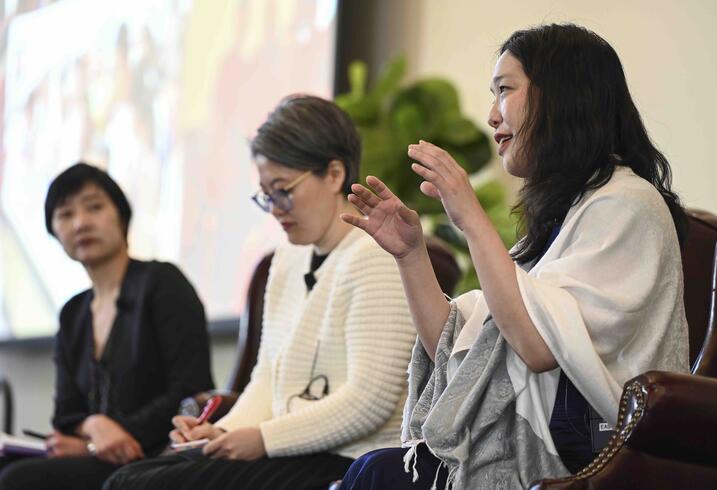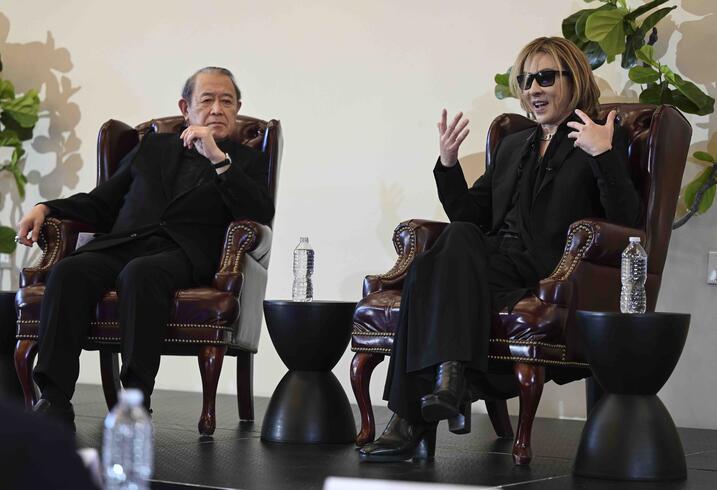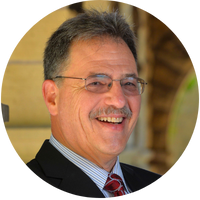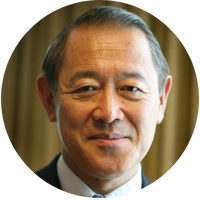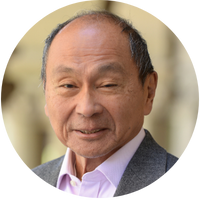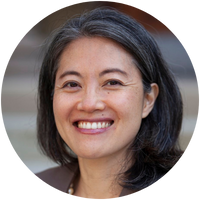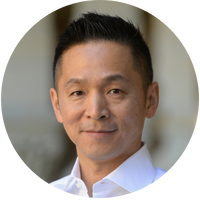1-1:30 p.m.
Opening Session
Opening Remarks
Gi-Wook Shin
Director of Shorenstein APARC and the Korea Program
William J. Perry Professor of Contemporary Korea
Professor of Sociology
Senior Fellow at the Freeman Spogli Institute for International Studies
Stanford University
Congratulatory Remarks
Kathryn Ann “Kam” Moler
Vice Provost and Dean of Research
Marvin Chodorow Professor
Professor of Applied Physics, Physics, and Energy Science Engineering
Stanford University
Condoleezza Rice
Tad and Dianne Taube Director of the Hoover Institution
Senior Fellow on Public Policy at the Hoover Institution
Denning Professor of Global Business and the Economy at the Stanford Graduate School of Business
Professor of Political Science
Senior Fellow at Freeman Spogli Institute for International Studies
Stanford University
Scott D. Sagan
Co-Director and Senior Fellow at the Center for International Security and Cooperation
Caroline S.G. Munro Professor of Political Science
Mimi and Peter Haas University Fellow in Undergraduate Education
Senior Fellow at the Freeman Spogli Institute for International Studies
Stanford University
1:30-2:45 p.m.
The Future of Diplomacy
John Everard
Former Ambassador to Belarus, Uruguay, and North Korea for the United Kingdom
Coordinator of the UN Security Council’s Panel of Experts on North Korea
Former Pantech Fellow at Shorenstein APARC
Laura Stone
Former U.S. Deputy Assistant Secretary of State for India, Nepal, Sri Lanka, Bangladesh, Bhutan, and Maldives
Former Acting Deputy Assistant Secretary for China and Mongolia;
Former Director of the Office of Chinese and Mongolian Affairs
Former Director of Economic Policy Office in the Bureau of East Asia and Pacific Affairs
Visiting Scholar and Inaugural China Policy Fellow at Shorenstein APARC at Stanford University
Moderator
Michael Beeman
Former Assistant U.S. Trade Representative for Japan, Korea, and APEC at the Office of the U.S. Trade Representative
Visiting Scholar at Shorenstein APARC
Stanford University
2:45-3 p.m. ~ Coffee and Tea Break
3-4:15 p.m.
The Future of Asian Studies
Panelists
Donald K. Emmerson
Director of the Southeast Asia Program at Shorenstein APARC
Affiliated Faculty with the Center on Democracy, Development, and the Rule of Law
Affiliated Scholar with the Abbasi Program in Islamic Studies
Senior Fellow Emeritus at the Freeman Spogli Institute for International Studies
Stanford University
Thomas B. Gold
Professor of Sociology
University of California, Berkeley
Jisoo Kim
Korea Foundation Associate Professor of History, International Affairs, and East Asian Languages and Literatures
Director of the Institute for Korean Studies
Co-Director of the East Asia National Resource Center
The George Washington University
Moderator
Kiyoteru Tsutsui
Deputy Director of Shorenstein APARC
Director of the Japan Program
Henri H. and Tomoye Takahashi Professor and Senior Fellow in Japanese Studies
Professor of Sociology
Senior Fellow at the Freeman Spogli Institute for International Studies
Stanford University
4:15-4:30 p.m. ~ Coffee and Tea Break
4:30-6 p.m.
Oksenberg Panel: The Future of U.S.-China Relations
Introduction
Jean C. Oi
Director of the China Program at Shorenstein APARC
Lee Shau Kee Director of the Stanford Center at Peking University
William Haas Professor of Chinese Politics
Senior Fellow at the Freeman Spogli Institute for International Studies
Stanford University
Panelists
M. Taylor Fravel
Arthur and Ruth Sloan Professor of Political Science and Director, Security Studies Program
Massachusetts Institute of Technology
David Michael Lampton
Professor Emeritus and former Hyman Professor and Director of SAIS-China and China Studies, School of Advanced International Studies at John Hopkins University
Former Oksenberg-Rohlen Fellow at Shorenstein APARC
Oriana Skylar Mastro
Center Fellow at the Freeman Spogli Institute for International Studies
Stanford University
Moderator
Thomas Fingar
Former U.S. Department of State Assistant Secretary of the Bureau of Intelligence and Research, Deputy Assistant Secretary for Analysis, Director of the Office of Analysis for East Asia and the Pacific, and Chief of the China Division
Former Deputy Director of National Intelligence for Analysis and Chairman of the National Intelligence Council
Fellow at Shorenstein APARC
Stanford University
9-9:15 a.m.
Opening Remarks
Kiyoteru Tsutsui
Senior Fellow, Freeman Spogli Institute for International Studies
Henri H. and Tomoye Takahashi Professor in Japanese Studies
Director, Japan Program, Shorenstein Asia-Pacific Research Center
Deputy Director, Shorenstein Asia-Pacific Research Center
Co-Director, Center for Human Rights and International Justice
Professor of Sociology
Stanford University
9:15-10:45 a.m.
The Future of Governance
Panelists
Curtis J. Milhaupt
William F. Baxter-Visa International Professor of Law
Senior Fellow, by courtesy, at the Freeman Spogli Institute for International Studies
Stanford University
Kathryn Stoner
Mosbacher Director of the Center on Democracy, Development, and the Rule of Law
Senior Fellow at the Center on International Security and Cooperation and Freeman Spogli Institute for International Studies
Senior Fellow (by courtesy) at the Hoover Institution
Professor of Political Science (by courtesy)
Stanford University
Gita Wirjawan
Former Minister of Trade and former Chairman of the Investment Coordinating Board of the Republic of Indonesia
Founder of Ancora Group and Ancora Foundation
Visiting Scholar at Shorenstein APARC, Stanford University
Moderator
Andrew G. Walder
Senior Fellow at Freeman Spogli Institute for International Studies
Denise O’Leary and Kent Thiry Professor in the School of Humanities and Sciences
Director Emeritus of Shorenstein APARC and the Division of International, Comparative and Area Studies
Stanford University
10:45-11 a.m. ~ Coffee and Tea Break
11 a.m.-12:30 p.m.
The Future of Journalism
Panelists
Sang-Hun Choe
Seoul Bureau Chief for The New York Times
Pulitzer Prize for Investigative Reporting winner
Former Koret Fellow at Shorenstein APARC
Pia Ranada
Senior Political Reporter at Rappler
2022-23 John S. Knight Journalism Fellow
Stanford University
Moderator
James Hamilton
Hearst Professor of Communication
Chair of the Department of Communication
Director of the Stanford Journalism Program
Shorenstein Journalism Award selection committee member
Stanford University
12:30-2 p.m. ~ Lunch Break
2-3:30 p.m.
The Future of Sustainability
Panelists
Rafiq Dossani
Director of the RAND Center for Asia Pacific Policy
Former Senior Research Scholar and Executive Director of the South Asia Initiative at Shorenstein APARC, Stanford University
Scot Marciel
Oksenberg-Rohlen Fellow at Shorenstein APARC, Stanford University
Former U.S. Ambassador to Myanmar, Indonesia, and the Association of Southeast Asian Nations
Latha Palaniappan
Professor of Medicine
Co-Founder of the Center for Asian American, Native Hawaiian, and Pacific Islander Health Research and Education
Stanford University
Moderator
Scott Rozelle
Faculty Co-Director of the Stanford Center on China’s Economy and Institutions
Helen F. Farnsworth Endowed Professor
Senior Fellow at the Freeman Spogli Institute for International Studies and the Stanford Institute for Economic Policy Research
Affiliate Faculty of the Center on Democracy, Development, and the Rule of Law
Stanford University
3:30-3:45 p.m. ~ Coffee and Tea Break
3:45-5 p.m.
The Future of AI
Panelists
Vijendra Raj Apsingekar
Senior Staff Engineer and Manager
Samsung Research America
Tatsunori Hashimoto
Assistant Professor
Department of Computer Science
Stanford University
Moderator
Yasumasa Yamamoto
Visiting Professor at Kyoto University
Former Visiting Scholar at Shorenstein APARC
Stanford University

Vijendra Raj Apsingekar, after completing his MS, Ph.D. at New Mexico State University in Speech Processing with a ML focus, worked in Signal Processing research in the initial part of his career. He led a team in researching Automatic Speech Recognition for an early-stage startup, joined Samsung in 2018, and is currently leading Speech R&D for North American Bixby Labs at Samsung. Dr. Apsingekar enjoys readihng the latest research papers in speech domain, and he loves mentoring new and budding engineers. He is a senior member of IEEE and ISCA, and a reviewer for Interspeech and ICASSP. Outside of work he enjoys networking and learning about new startups and entrepreneurial ideas. In his free time, he enjoys cooking (vegetarian) and hiking.

Michael Beeman is a Visiting Scholar during 2023 at Shorenstein APARC. Previously, he served as Assistant U.S. Trade Representative for Japan, Korea and APEC at the Office of the U.S. Trade Representative (USTR). In that role, he led the renegotiation of the U.S.-Korea Free Trade Agreement and the U.S.-Japan Trade Agreement, among other initiatives. After joining the U.S. government in 1998, he served in various other capacities for the Department of Commerce, for the U.S. Executive Director to the World Bank, and for USTR. He received his D.Phil. (Ph.D.) in Politics from the University of Oxford in 1998 and is the author of Public Policy and Economic Competition in Japan (Routledge, 2002).

Sang-Hun Choe is the Seoul bureau chief for The New York Times, focusing on news on North and South Korea. He worked for The Associated Press for 11 years before joining The Times in 2005. He is a co-author of two books on Korea and co-editor of another two, also on Korea. He was a 2010-11 fellow in Korean studies at the Walter H. Shorenstein Asia-Pacific Research Center of Stanford University. He has won journalism awards for his reports on Korea and Myanmar, including a 2000 Pulitzer Prize.

Rafiq Dossani is the director of the RAND Center for Asia Pacific Policy, a senior economist at the RAND Corporation, and a professor of policy analysis at the Pardee RAND Graduate School. He works on education, finance, regional development, security, trade, and technology issues. Recent projects include China's grand strategy and its use of institutions, security in the Korean peninsula, the Belt and Road Initiative, Track II diplomacy between the United States and China, and Asia's democratization. Previously, Dossani was director of Stanford University's Center for South Asia, former Senior Research Scholar and Executive Director of the South Asia Initiative at Shorenstein APARC. He holds a Ph.D. in finance from Northwestern University, an M.B.A. from the Indian Institute of Management, Calcutta, and a B.A. in economics from St. Stephen's College, Delhi.

Don Emmerson runs Shorenstein APARC’s Southeast Asia Program, is affiliated with the Center on Democracy, Development and the Rule of Law and the Abbasi Program in Islamic Studies, and is Senior Fellow Emeritus at the Freeman Spogli Institute for International Studies. In April 2023, to mark APARC’s 40th anniversary, he organized a four-country webinar on the future of intermestic relations in Southeast Asia. As a speaker and teacher, he is an active analyst of the region. His writings span more than a dozen books and monographs and over 300 shorter pieces. In 2010 he won a two-year research award given to “top scholars” who have “successfully bridged the gap between the academy and policy.” His pre-Stanford stints include a professorship at the University of Wisconsin-Madison and a fellowship at the Institute for Advanced Study. His degrees are from Princeton (BA) and Yale (PhD). His country of least ignorance is Indonesia.

John Everard was educated at Emmanuel College, Cambridge University (French, German, Chinese), and then at Beijing University (history, economics) as one of the earliest students in China after the Cultural Revolution. He also holds an MBA from Manchester Business School. He served in the British Foreign and Commonwealth Office for twenty-seven years, working in Austria, Bosnia, Chile, and China. He served as Ambassador to Belarus, to Uruguay, and finally to North Korea from 2006 to 2008. After his retirement in 2008 he was appointed Pantech Fellow at the Shorenstein Asia-Pacific Research Center at Stanford University from 2010 to 2011 when he wrote a book "Only Beautiful, Please" discussing his experiences of North Korea. From 2011-2012 he coordinated the UN Security Council Panel of Experts on North Korea. Since 2012, he has written extensively for the media, broadcast and lectured, both on Korean issues and on international affairs generally.

Thomas Fingar is a Shorenstein APARC Fellow in the Freeman Spogli Institute for International Studies at Stanford University. From 2005 through 2008, he served as the first Deputy Director of National Intelligence for Analysis and, concurrently, as Chairman of the National Intelligence Council. Previous positions include Assistant Secretary of the State Department’s Bureau of Intelligence and Research (2000-2001 and 2004-2005), Principal Deputy Assistant Secretary (2001-2003), and Deputy Assistant Secretary for Analysis (1994-2000). Dr. Fingar is a graduate of Cornell University (A.B. in Government and History, 1968), and Stanford University (M.A., 1969 and Ph.D., 1977 both in Political Science). Recent books include Reducing Uncertainty: Intelligence Analysis and National Security (Stanford University Press, 2011), Fateful Decisions: Choices that will Shape China’s Future (edited with Jean Oi, Stanford, 2020); and From Mandate to Blueprint: Lessons from Intelligence Reform (Stanford University Press, 2021).

M. Taylor Fravel is the Arthur and Ruth Sloan Professor of Political Science and Director of the Security Studies Program at the Massachusetts Institute of Technology. Taylor studies international relations, with a focus on international security, China, and East Asia. His books include Strong Borders, Secure Nation: Cooperation and Conflict in China’s Territorial Disputes, (Princeton University Press, 2008) and Active Defense: China's Military Strategy Since 1949 (Princeton University Press, 2019). Taylor is a graduate of Middlebury College and Stanford University, where he received his PhD. In 2016, he was named an Andrew Carnegie Fellow by the Carnegie Corporation. Taylor has been a member of the board of directors of the National Committee on U.S.-China Relations and serves as the Principal Investigator for the Maritime Awareness Project.

Thomas Gold is Professor of Sociology Emeritus at the University of California, Berkeley. He was Executive Director of the Inter-University Program for Chinese Language Studies from 2000-2016. He was in the first group of American exchange students to study in China in 1979. His research examines issues of youth, civil society, popular culture, and private business in China, as well as economic, social, cultural and political change in Taiwan. His most recent co-edited volume compares the Sunflower Movement in Taiwan and Umbrella Movement in Hong Kong. He is currently writing a memoir of his year in China at the dawn of reform, and a book on Taiwan society since the end of Martial Law in 1987. He is on the Board of the Asia Society of Northern California and a senior advisor to the Public Intellectuals Program of the National Committee on U.S.-China Relations.

James T. Hamilton is the Hearst Professor of Communication, Chair of the Department of Communication, and Director of the Journalism Program at Stanford. His books on media markets include All the News That’s Fit to Sell: How the Market Transforms Information into News, and Channeling Violence: The Economic Market for Violent Television Programming. His most recent book, Democracy’s Detectives: The Economics of Investigative Journalism, focuses on the market for investigative reporting. Through research in the field of computational journalism, he is exploring how the costs of story discovery can be lowered through better use of data and algorithms. Hamilton is co-founder of the Stanford Computational Journalism Lab, a senior fellow at the Stanford Institute for Economic Policy Research, affiliated faculty at the Brown Institute for Media Innovation, and a member of the JSK Journalism Fellowships Board of Visitors.

Tatsunori Hashimoto is currently an assistant professor at the computer science department in Stanford University. His research uses tools from statistics to make machine learning systems more robust and trustworthy — especially in complex systems such as large language models. The goal of his research is to use robustness and worst-case performance as a lens to understand and make progress on several fundamental challenges in machine learning and natural language processing. Previously, he was a post-doc at Stanford working for John C. Duchi and Percy Liang on tradeoffs between the average and worst-case performance of machine learning models. Before his post-doc, he was a graduate student at MIT co-advised by Tommi Jaakkola and David Gifford and a undergraduate student at Harvard in statistics and math advised by Edoardo Airoldi.

Jisoo M. Kim is Korea Foundation Associate Professor of History, International Affairs, and East Asian Languages and Literatures at George Washington University. She is the founding director of the GW Institute for Korean Studies (2017-Present) and Founding Co-Director of the East Asia National Resource Center (2018-Present). She also serves as Editor-in-Chief of the Journal of Korean Studies. She specializes in gender, sexuality, law, emotions, and affect in Korean history. She is the author of The Emotions of Justice: Gender, Status, and Legal Performance in Chosŏn Korea (University of Washington Press, 2015), which was awarded the 2017 James Palais Prize of the Association for Asian Studies. She is also the co-editor of The Great East Asian War and the Birth of the Korean Nation by JaHyun Kim Haboush (Columbia University Press, 2016). She received her M.A., M.Phil., and Ph.D. in East Asian Languages and Cultures from Columbia University.
.png)
David M. Lampton is a Senior Research Fellow at the SAIS Foreign Policy Institute and Professor Emeritus at the Johns Hopkins School of Advanced International Studies—SAIS. For more than two decades he was Hyman Professor and Director of China Studies at SAIS. Lampton is a former Chairman of The Asia Foundation in San Francisco, former President of the National Committee on United States-China Relations in New York, and former Dean of Faculty at SAIS. His many publications, academic and popular, deal with US-China Relations, Chinese Foreign Policy, Chinese Leadership, Chinese Politics, and Chinese Power. His most recent volume tells the exciting story of China’s drive to build high-speed railways in Southeast Asia—Rivers of Iron. He received his B.A., M.A., and Ph.D. degrees from Stanford University in political science where, as an undergraduate student, he was a firefighter. Lampton has an honorary doctorate from the Russian Academy of Sciences’ Institute of Far Eastern Studies. He is a Life Trustee on the Board of Trustees of Colorado College and was in the US Army Reserve in the enlisted and commissioned ranks.

Scot Marciel is the Oksenberg-Rohlen Fellow at Stanford University's Walter H. Shorenstein Asia-Pacific Research Center. He joined APARC in 2022 after a 37-year career in the U.S Foreign Service, which included assignments as Ambassador to Indonesia, Ambassador to Myanmar, and Ambassador for ASEAN Affairs, as well as Principal Deputy Assistant Secretary for East Asia and the Pacific.

Oriana Skylar Mastro is a Center Fellow at the Freeman Spogli Institute for International Studies and Courtesy Assistant Professor of Political Science at Stanford University where her research focuses on Chinese military and security policy, Asia-Pacific security issues, war termination, and coercive diplomacy. She was previously an assistant professor of security studies at Georgetown University. She is also a Non-Resident Senior Fellow at the American Enterprise Institute and continues to serve in the United States Air Force Reserve for which she works as a strategic planner at INDOPACOM. She has published widely, including in Foreign Affairs, International Security, International Studies Review, Journal of Strategic Studies, The Washington Quarterly, The National Interest, Survival, and Asian Security. She holds a B.A. in East Asian Studies from Stanford University and an M.A. and Ph.D. in Politics from Princeton University.

Michael McFaul is the Director and Senior Fellow at the Freeman Spogli Institute for International Studies; the Ken Olivier and Angela Nomellini Professor of International Studies in Political Science; and the Peter and Helen Bing Senior Fellow at the Hoover Institution, all at Stanford University. He was also the Distinguished Mingde Faculty Fellow at the Stanford Center at Peking University from June to August of 2015. He joined the Stanford faculty in 1995. Ambassador McFaul is also an analyst for NBC News and a contributing columnist to The Washington Post. He served for five years in the Obama administration, first as Special Assistant to the President and Senior Director for Russian and Eurasian Affairs at the National Security Council at the White House (2009-2012), and then as U.S. Ambassador to the Russian Federation (2012-2014). He has authored several books, including most recently the New York Times bestseller, From Cold War to Hot Peace: An American Ambassador in Putin’s Russia. He is currently writing a book on great powers relations in the 21st century.

Curtis J. Milhaupt is the William F. Baxter-Visa International Professor of Law at Stanford Law School and a Senior Fellow, by courtesy, of the Freeman Spogli Institute for International Studies at Stanford University. His research and teaching interests include comparative corporate governance, the legal systems of East Asia, and Chinese state capitalism. Prior to his Stanford appointment in 2018, Professor Milhaupt held chaired professorships in comparative corporate law and Japanese law at Columbia Law School. Professor Milhaupt has held numerous visiting appointments at universities around the world and is the recipient of two teaching awards. Prior to entering academia, he practiced corporate law in New York and Tokyo with a major U.S. law firm. He holds a J.D. from Columbia Law School and a B.A. from the University of Notre Dame. He also conducted graduate studies in both law and international relations at the University of Tokyo.

Katheryn Moler is Vice Provost and Dean of Research. She oversees five shared research facilities and platforms and Stanford’s eighteen independent labs, institutes, and centers, which span the life sciences, physical sciences, social sciences, humanities, engineering, and medicine. She also oversees offices that support the research enterprise, including the offices of Environmental Health and Safety, STEM Outreach, Research Administration, Research Compliance, Research Development, and Technology Licensing. In addition she directs the Office of the Vice Provost and Dean of Research and its many functions including the cognizant dean's office for the independent labs, institutes and centers, export control, conflicts of interest, global engagement, and research data privacy. Vice Provost Moler earned her bachelor’s degree in physics with honors from Stanford in 1988 and her doctorate in physics from Stanford in 1995. After three years as an R. H. Dicke postdoctoral fellow at Princeton University, she became the first female faculty member in Stanford’s Department of Applied Physics in 1998. She conducts research in magnetic imaging, develops tools that measure nanoscale magnetic fields, and studies quantum materials and devices. She has authored or co-authored more than 80 scientific papers.

Jean C. Oi is the William Haas Professor of Chinese Politics in the Department of Political Science and a Senior Fellow of the Freeman Spogli Institute for International Studies (FSI) at Stanford University. She directs the China Program at the Walter H. Shorenstein Asia-Pacific Research Center at FSI and is the founding Lee Shau Kee Director of the Stanford Center at Peking University. In March 2022 she was elected Vice President of the Association for Asian Studies, taking office as President in March 2023. She holds a Ph.D. in political science from the University of Michigan. Oi has published extensively on political economy and reform in China. Recent publications include Zouping Revisited: Adaptive Governance in a Chinese County, co-edited with Steven Goldstein, Stanford University Press, 2018; Fateful Decisions: Choices that will Shape China's Future, coedited with Tom Fingar (2020); “Firms as Revenue Safety Net: Political Connections and Returns to the Chinese State,” co-authored (China Quarterly 2022), and “China’s Local Government Debt: The Grand Bargain,” co-authored in The China Journal 2022). Her new research focuses on China’s Belt and Road Initiative.

Latha Palaniappan MD, MS, is an internist, and clinical and population researcher. Her research has focused on the study of diverse populations, chronic disease and prevention, and seeks to address the gap in knowledge of health in Asian subgroups and other understudied racial/ethnic minorities. She was awarded a Stanford Impact Labs Leave in Service to pursue chronic disease prevention in India for Social Good. She is the Faculty co-Director of Stanford Biobank, designed to accelerate translatable scientific discoveries and co-founder for the Stanford Center for Asian American, Native Hawaiian and Pacific Islander Health Research and Education (CARE). CARE has established health related research collaborations in Asia, including student exchange programs in Hong Kong and Vietnam, and research collaborations in India, Japan, and Singapore. She has recently received a Fulbright Future Scholar Award and worked with the Commonwealth Scientific and Industrial Research Organisation on implementation of Precision Health in Australia.

Pia Ranada is a senior political reporter at the award-winning Philippine news online outlet Rappler, led by 2021 Nobel Peace Prize Laureate Maria Ressa. She is in Stanford as a 2022-2023 John S. Knight Journalism Fellow. She is known for her critical coverage of the Duterte administration, Philippine security and foreign policy, and climate change impacts in the Philippines. Last year, she was named one of The Outstanding Women in the Nation’s Service for her journalism.

Condoleezza Rice is the Tad and Dianne Taube Director of the Hoover Institution and a Senior Fellow on Public Policy. She is the Denning Professor in Global Business and the Economy at the Stanford Graduate School of Business. She is a founding partner of Rice, Hadley, Gates & Manuel LLC, an international strategic consulting firm. From January 2005 to January 2009, Rice served as the 66th Secretary of State of the United States. Rice also served as National Security Advisor for President George W. Bush from January 2001 to January 2005. Rice served as Stanford University’s provost (1993 to 1999) and as a professor since 1981, winning two of the university’s highest teaching honors. Rice earned her degrees in political science; a bachelor’s degree at the University of Denver; a master’s at the University of Notre Dame; and a Ph.D. from the Graduate School of International Studies at the University of Denver.

Scott Rozelle holds the Helen Farnsworth Endowed Professorship at Stanford University and is Senior Fellow in the Freeman Spogli Institute (FSI) for International Studies and is Co-Director of the Stanford Center on China’s Economy and Institutions (SCCEI). Professor Rozelle, a development economist with a Ph.d. from Cornell University, has worked on the economics of rural China for nearly 40 years. Currently, his work focuses on human capital and China’s future growth and development, including issues of rural health, nutrition and education, including early childhood development.

Scott D. Sagan is the Caroline S.G. Munro Professor of Political Science, the Mimi and Peter Haas University Fellow in Undergraduate Education, and Senior Fellow at CISAC and the FSI at Stanford University. He also serves as Chairman of the American Academy of Arts and Sciences’ Committee on International Security Studies. Before joining the Stanford faculty, Sagan was a lecturer at Harvard University and served as special assistant to the director of the Organization of the Joint Chiefs of Staff in the Pentagon. His recent research has examined transnational attitudes towards the laws of armed conflict, the role of law in nuclear strategy, and American public opinion on the use of force. In 2022 Sagan received the Thérèse Delpech Memorial Award from the Carnegie Endowment for International Peace, an award given for "exceptional service to the nongovernmental nuclear policy community."

Gi-Wook Shin is the William J. Perry Professor of Contemporary Korea in Sociology and a senior fellow of the Freeman Spogli Institute for International Studies at Stanford University. He has served as director of the Walter H. Shorenstein Asia-Pacific Research Center since 2005, and as founding director of the Korea Program since 2001. His research concentrates on social movements, nationalism, and international relations, focusing on Korea and Asia. Shin is the author/editor of numerous books and articles, including South Korea’s Democracy in Crisis: The Threats of Illiberalism, Populism, and Polarization and The North Korean Conundrum: Balancing Human Rights and Nuclear Security. Shin’s current research initiatives include Global Talent Flows and Nationalism and Racism, focusing on the Asia-Pacific region. Shin previously taught at the University of Iowa and the University of California, Los Angeles. He holds a BA from Yonsei University and an MA and PhD from the University of Washington.

Laura M. Stone joins the Walter H. Shorenstein Asia-Pacific Research Center (Shorenstein APARC) as Visiting Scholar and China Policy Fellow for the 2022-2023 academic year. She currently serves the U.S. Department of State, most recently as Deputy Coordinator for the Secretary's Office for COVID Response and Health Security. While at APARC, she will be conducting research with the China Program and Professor Jean Oi regarding contemporary China affairs and U.S.-China policy.

Kathryn Stoner is the Mosbacher Director of the Center on Democracy, Development, and the Rule of Law (CDDRL), and a Senior Fellow at CDDRL and the Center on International Security and Cooperation at FSI. From 2017 to 2021, she served as FSI's Deputy Director. She is Professor of Political Science (by courtesy) at Stanford and she teaches in the Department of Political Science, and in the Program on International Relations, as well as in the Ford Dorsey Master's in International Policy Program. She is also a Senior Fellow (by courtesy) at the Hoover Institution. Prior to coming to Stanford in 2004, she was on the faculty at Princeton University for nine years, jointly appointed to the Department of Politics and the Princeton School for International and Public Affairs (formerly the Woodrow Wilson School). At Princeton, she received the Ralph O. Glendinning Preceptorship awarded to outstanding junior faculty. She received a BA (1988) and MA (1989) in Political Science from the University of Toronto, and a PhD in Government from Harvard University (1995). In 2016 she was awarded an honorary doctorate from Iliad State University, Tbilisi, Republic of Georgia.

Elbegdorj Tsakhia joins the Freeman Spogli Institute for International Studies (FSI) and the Walter H. Shorenstein Asia-Pacific Research Center (Shorenstein APARC) in 2023 as Bernard and Susan Liautaud Visiting Fellow, after a career in public service to Mongolia as a Member of Parliament, Prime Minister, and President. Currently, Mr. Elbegdorj is continuing his work to improve public policy, governance, and democracy through the Elbegdorj Institute, a think tank he founded in 2008. Mr. Elbegdorj holds a Master of Public Administration from Harvard University John F. Kennedy School of Government (2002) and Bachelor’s Degree in Journalism from Land Forces Military Academy of Lviv of former USSR (1988). While at Stanford, his focus will include democracy, disarmament, and governance across Asia.

Kiyoteru Tsutsui is the Henri H. and Tomoye Takahashi Professor and Senior Fellow in Japanese Studies at Shorenstein APARC, the Director of the Japan Program and Deputy Director at APARC, a senior fellow of the Freeman Spogli Institute for International Studies, and Professor of Sociology, all at Stanford University. Tsutsui received his bachelor’s and master’s degrees from Kyoto University and earned an additional master’s degree and Ph.D. from Stanford’s sociology department in 2002. Tsutsui’s research interests lie in political/comparative sociology, social movements, globalization, human rights, and Japanese society. His most recent publication, Human Rights and the State: The Power of Ideas and the Realities of International Politics (Iwanami Shinsho, 2022), was awarded with the 2022 Ishibashi Tanzan Award and the 44th Suntory Prize for Arts and Sciences.

Andrew G. Walder is the Denise O'Leary and Kent Thiry Professor in the School of Humanities and Sciences, and teaches in the Department of Sociology. He is also a Senior Fellow in the Freeman-Spogli Institute of International Studies, where he is an affiliate of the Shorenstein Asia-Pacific Research Center. His most recent books are China Under Mao: A Revolution Derailed (2015), Forces of Disorder: Inside China’s Cultural Revolution (2019) and (with Dong Guoqiang) A Decade of Upheaval: The Cultural Revolution in Rural China (2021), and Civil War in Guangxi: The Cultural Revolution in China’s Southern Periphery (2023). He is a former Guggenheim Fellow and an elected member of the American Academy of Arts and Sciences.

Gita Wirjawan is a visiting scholar at the Walter H. Shorenstein Asia Pacific Research Center, Freeman Spogli Institute, Stanford University. He is the host of a Southeast Asia educational podcast called Endgame, a member of the Board of Governors of the Asia School of Business (MIT Sloan), a member of the international council of the Yale School of Management, and chairman of the Advisory Board of the School of Government and Public Policy (SGPP) Indonesia. While as chairman of Ancora Group, a business group based in Indonesia, he is also a partner at Ikhlas Capital, a Singapore-based Southeast Asia private equity fund. He is also an adviser to a number of Southeast Asia-based venture capital firms, including Alpha JWC Ventures, Monk's Hill Ventures, Jungle Ventures, and Intudo Ventures. He is also a member of the International Advisory Board of Chubb. Previously, he was trade minister and chairman of the Investment Coordinating Board of the Republic of Indonesia during the years 2009–2014, a banker at JP Morgan, Goldman Sachs, and Citibank, and a public accountant. He received his MPA at Harvard University Kennedy School of Government, MBA at Baylor University, and BBA at the University of Texas, Austin.

Yasumasa Yamamoto is a Visiting Professor at Kyoto University graduate school of management and has been a specialist in emerging technology such as fintech, blockchain, and deep learning. He was previously an industry analyst at Google and a senior specialist in quantitative analysis of secularized products as well as derivatives at Bank of Tokyo Mitsubishi UFJ in New York. Yamamoto holds a M.S. from Harvard University and a master's degree from the University of Tokyo.





















.png)



















